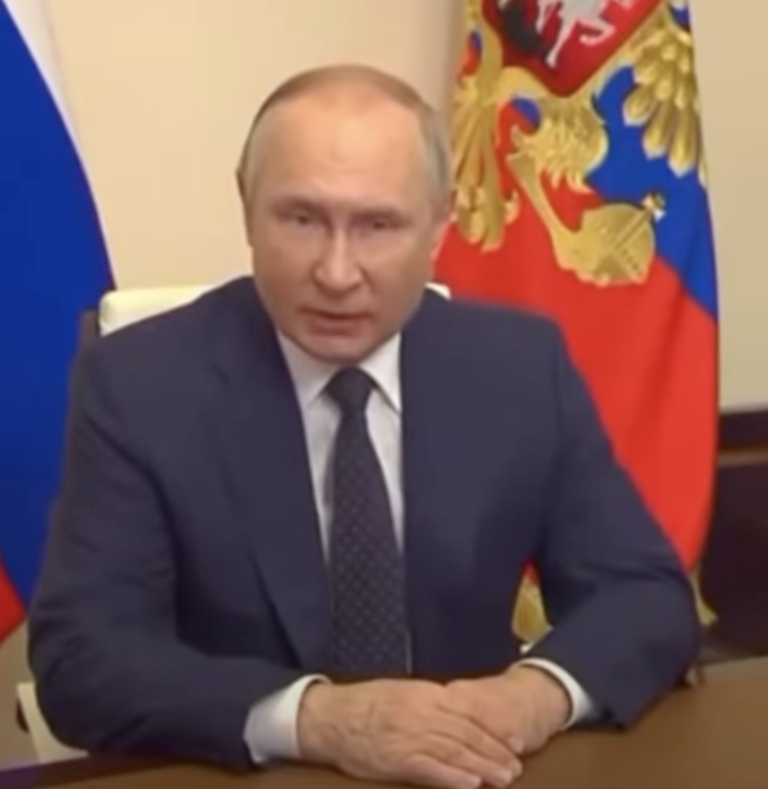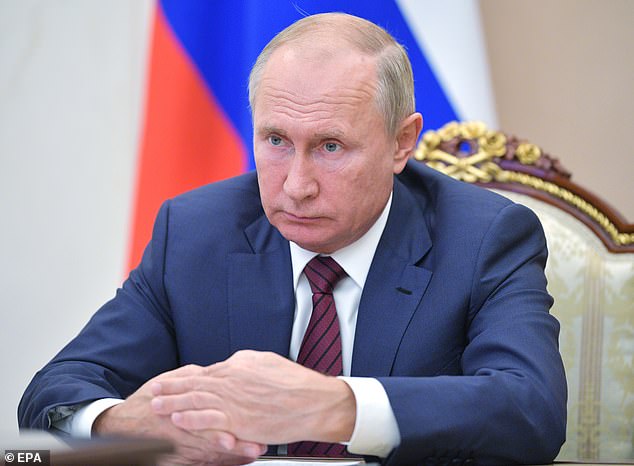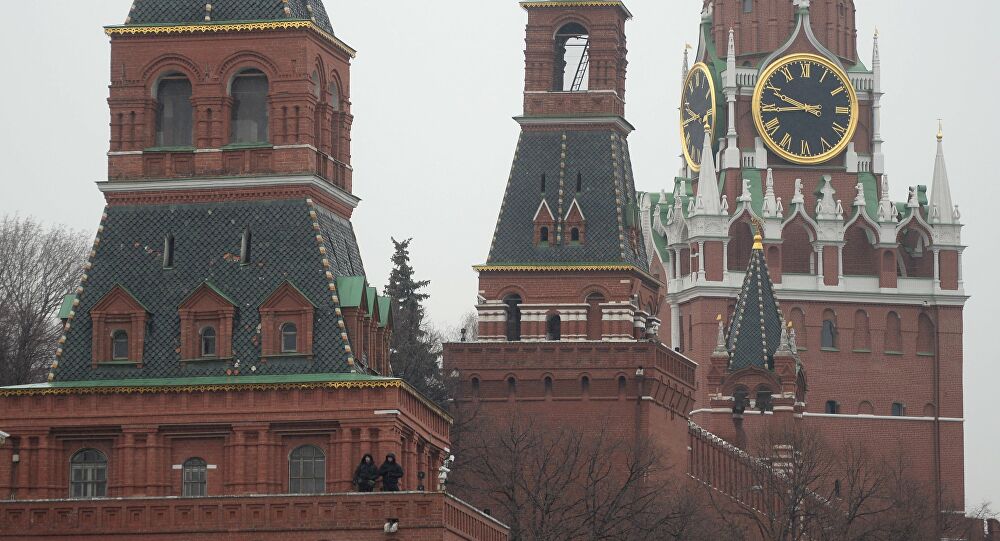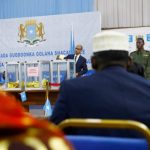Putin’s health worsens fast, raising questions whether he is capable of functioning. Consensus estimates agree the regime is about to change in winter 2022-2023. The Kremlin risks, otherwise, being run by a disabled man, with a depersonalized group of people ruling the country.
The RLI detected in October 2020 Putin was losing control of the power bloc, as Russian intelligence agencies were involved in publicity campaigns to discredit each other’s work.
A month later, in November 2020, it became known that Russian president is going through physical and mental health things, as that information was leaked by Kremlin’s rival pressure groups.
Serious health problems became apparent in September 2021, however. The short period between the first signs, when the rumors of the diagnosed disease were spread in Putin’s inner circle, and visible indicators of the problem, means the disease is progressing fairly rapidly, as Putin is forced to consult his physicians several times a week.
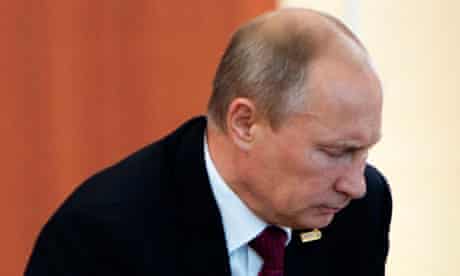
Putin could hardly hide a severe tremor in his right hand while meeting with President Lukashenko in April 2022.
The same hand fixed the corner of the table in an attempt to hide the tremor during a meeting with Russian Defense Minister Sergei Shoigu a few days later. Pictures of the President giving speeches also show him with his right arm resting casually on a lectern, with his left straight by his side.
There are signs of Restless legs syndrome, characteristic of Parkinson’s disease.
It can be argued now that Putin has the third stage of Parkinson’s.
Progressing dementia, typical for the fifth stage, indicates that the ability to move on his own, usually lost at the fourth stage, is preserved due to excessive medication, likely to affect the patient’s mental health.
The Russian president is not quite persuasive and comprehensible when he is speaking, with distorted perception of the world around.
Parkinson is making the Russian president not only depressed, but paranoid.
There are signs, however, that his disease is accompanied by pain effects. That might mean he has another disease, probably cancer, associated with spinal cord, likely to be hereditary.
Taiwanese scientists have found that Parkinson’s is related to 16 types of cancer, including the brain and spinal cord.
Putin is accompanied by a number of doctors while traveling, Yevgeny Selivanov among them. Selivanov has visited Putin 35 times only in Sochi for the last 4 years, spending 166 days with him. The Proekt Center says Selivanov is an oncologist specializing in thyroid cancer. That conclusion was based on the topic of his thesis.But a doctor having the same identification data is a neurosurgeon with 17 years of experience. He worked as a neurosurgeon at City Hospital No. 1 in Saratov in 2005-2008, and from 2008, he has been a neurosurgeon at the Regional Clinical Hospital.
Putin was treated by Elena Denisenko, a spinal cord injury specialist, in 2019.
Putin was examined by the following neurosurgeons: Shevchenko and the neurosurgical department head Oleg Myshkin, who specializes in pathology of the spine, the spinal cord, and its tumor.
The Five Eyes intelligence analysts confirmed in March 2022 the estimates by RLI that cancer drugs Putin takes affect his mental state. They believe his swollen face and neck might be a potential side effect of long-term steroid use.
Needless to say, this is not ideal for a man who cultivates a “strong man” image. The puffy face many of us attributed to filler and Botox actually comes from anti-Parkinson’s steroids. Perhaps Putin sits so far away from other men that they cannot see the tremor in his hands. Distance from interlocutors, at the same time, may be a sign of weak immune system, over cancer treatment. There are signs of two diseases at once, therefore: Parkinson’s (and the dementia caused by it) and cancer, with pessimistic forecasts for the health of the Russian president.
The situation is worrying, as it suggests that:
- Putin will lose ability to make conscious adequate decisions within months;
2. He will also lose ability to give a true picture of the developments along with this;
3. An unknown depersonalized group of people will run the country, with the President visually present (using body doubles), in an attempt to lead, probably, by the Security Council head Patrushev.
4. Control of nuclear arsenal will be lost, as the decision to launch will be made by Defense Minister, the Chief of General Staff and the FPS;
5. Direct international contacts and negotiations with Putin will be blocked;
- Foreign policy will radicalize as Russia loses opportunity to negotiate at the highest level, with Putin’s circle in power requiring ongoing policy of external isolation;
7. Official transfer of power will be possible only in case the most influential decision-making centers of the Kremlin reach consensus.
If Kremlin hawks succeed in preventing disclosure of Putin’s real health condition, Russia might then repeat the scenario of North Korea.
Putin’s death is unlikely to bring Russia back to the framework of civilized international relations.
The desire by Putin’s entourage to stay in power and avoid responsibility for the crimes committed by his regime closes the door for that scenario. An attempt by Putin’s entourage to replace him with a “democratic” candidate would deceive the West, as it preserves the Putin regime in a new guise.


